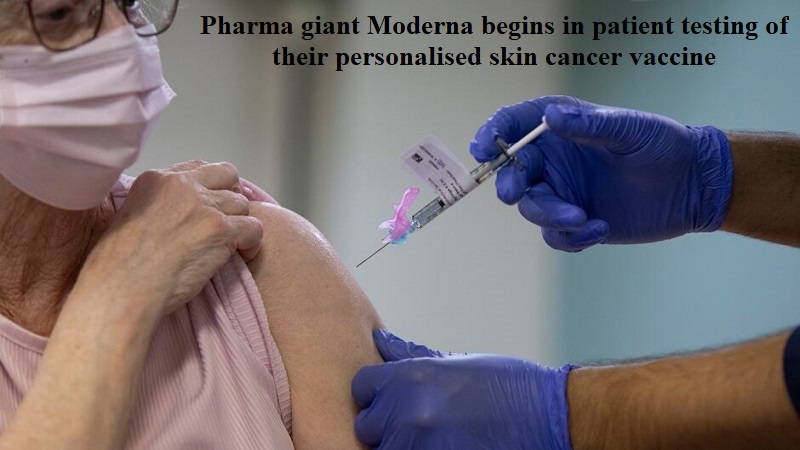
Pharmaceutical giants Moderna and Merck announced on Wednesday (July 26) that they have commenced patient recruitment for a late-stage study to test their personalized skin cancer vaccine in combination with the immunotherapy drug Keytruda.
Data from a mid-stage study involving 157 patients revealed that the vaccine combination reduced the risk of cancer recurrence or death by 44% in patients with melanoma, the most lethal form of skin cancer.
The ongoing trial aims to enroll over 1,000 patients from more than 25 countries, with the initial patients being recruited in Australia. The study focuses on melanoma patients who have had their tumors surgically removed and will receive either the drug-vaccine combination or Keytruda alone as subsequent treatment.
The personalized vaccine is designed to stimulate the production of T-cells, a critical component of the body’s immune response, based on the unique mutational signature of each patient’s tumor.
Merck’s Keytruda therapy is a checkpoint inhibitor, targeting the PD-1 protein that enables cancer cells to evade the immune system.
Aside from Moderna and Merck, other companies like BioNTech SE and Gritstone Bio are also exploring cancer vaccines based on mRNA technology.
Cancer vaccines have been a long-standing pursuit in scientific research, but there have been limited successes. However, mRNA vaccines, which can be developed within a short timeframe of about eight weeks, combined with immunostimulatory drugs, offer promising prospects for a new generation of cancer treatments, according to industry experts.
The primary objective of the late-stage trial is to assess the duration of time that patients remain cancer-free when treated with the combination therapy compared to treatment with Keytruda alone. The study duration will depend on the occurrence of this endpoint, as stated by the companies.

Post Your Comments